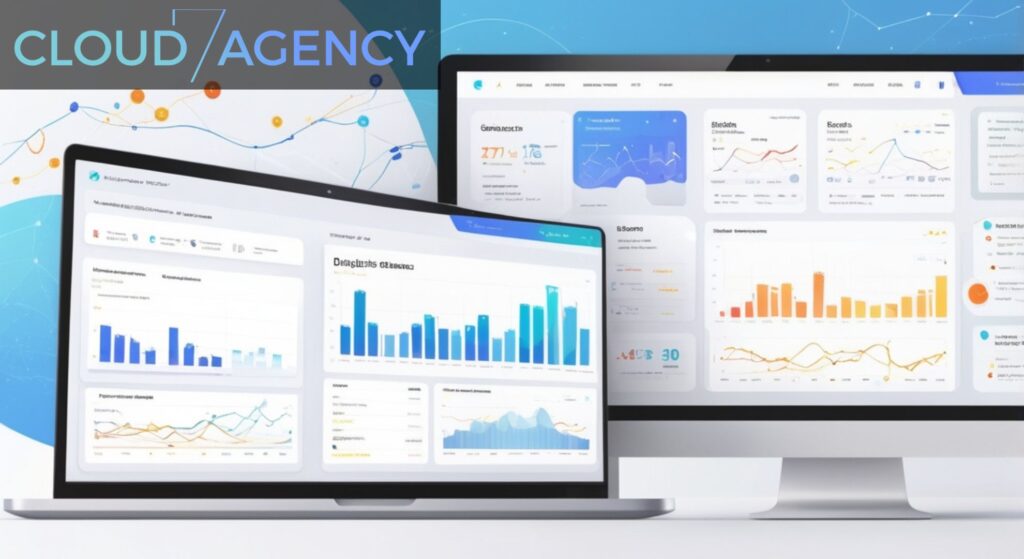Online reviews have fundamentally transformed how consumers discover, evaluate, and choose local businesses. In today’s digital marketplace, potential customers rely heavily on the experiences and opinions of previous customers to guide their purchasing decisions. This shift in consumer behavior has created a direct correlation between online reputation and business success, making review management a critical component of any local marketing strategy.
The relationship between online reviews and local search engine optimization (SEO) extends far beyond simple customer feedback. Search engines like Google have integrated review signals into their ranking algorithms, recognizing that businesses with positive reviews and high ratings typically provide better customer experiences. This integration means that how do online reviews affect local SEO has become a fundamental question for businesses seeking to improve their online visibility and attract more local customers.
When examining the impact of online reviews on local SEO, it’s essential to understand that search engines view reviews as trust signals. These signals help search algorithms determine which businesses deserve prominent placement in local search results. A business with numerous positive reviews signals to search engines that it provides quality products or services, leading to improved rankings in local search results and Google Maps listings.
The influence of reviews extends beyond algorithmic factors to encompass user behavior patterns that indirectly affect SEO performance. Businesses with strong review profiles experience higher click-through rates from search results, increased website traffic, and longer user engagement sessions. These behavioral signals further reinforce positive SEO outcomes, creating a virtuous cycle where good reviews lead to better rankings, which generate more visibility and potentially more reviews.
Customer trust represents another crucial dimension of review impact that directly influences business success. Modern consumers have learned to navigate the digital landscape by relying on peer recommendations and authentic feedback. Reviews serve as social proof, helping potential customers overcome purchase hesitation and building confidence in their decision-making process. This trust factor becomes particularly important for local businesses competing against larger national chains or online retailers.
Key Takeaways
Review quantity and quality directly influence local search rankings: Search engines use review signals as ranking factors, with businesses having more positive reviews typically ranking higher in local search results.
Review velocity matters for SEO performance: Consistent, recent reviews signal to search engines that a business is active and currently serving customers, leading to improved local search visibility.
Star ratings affect click-through rates: Higher average ratings in search results lead to increased clicks, which creates positive user behavior signals that further boost SEO performance.
Review responses demonstrate business engagement: Actively responding to reviews shows search engines and customers that a business is engaged and committed to customer service excellence.
Reviews provide fresh keyword-rich content: Customer reviews naturally contain location-specific keywords and service-related terms that help search engines understand business relevance for local queries.
Negative reviews can be turned into SEO opportunities: Professional responses to negative feedback demonstrate transparency and commitment to improvement, which can actually enhance trust and credibility.
Review schema markup enhances search visibility: Properly implemented structured data helps search engines display star ratings directly in search results, improving visibility and click-through rates.
Cross-platform review consistency builds authority: Maintaining strong review profiles across multiple platforms creates comprehensive digital authority that strengthens overall local SEO performance.
Understanding the Local SEO Review Connection
The relationship between online reviews and local SEO operates through multiple interconnected mechanisms that collectively influence how search engines evaluate and rank local businesses. Search engines have evolved to prioritize user experience and satisfaction, making customer feedback a valuable data source for determining business quality and relevance.

Google’s local ranking algorithm specifically incorporates review signals through what the company refers to as “prominence” factors. These factors include the overall review count, average rating, review recency, and review velocity. Businesses that consistently receive positive reviews demonstrate ongoing customer satisfaction, which search engines interpret as a strong indicator of business quality and reliability.
Review content also provides search engines with valuable contextual information about a business. Customer reviews naturally contain location-specific keywords, service descriptions, and industry terminology that help search algorithms understand what a business offers and where it operates. This organic keyword density can significantly enhance a business’s relevance for local search queries related to their products or services.
The technical implementation of review data through structured markup further amplifies SEO benefits. When businesses properly implement review schema, search engines can display star ratings directly in search results, creating rich snippets that improve visibility and attract more clicks. These enhanced search listings stand out from competitors and provide immediate visual cues about business quality.
The Trust Factor: How Reviews Build Customer Confidence
Customer trust represents the foundation of successful local business operations, and online reviews serve as the primary mechanism for building this trust in the digital age. When potential customers search for local services, they encounter numerous options, making the decision-making process increasingly complex. Reviews provide the social proof necessary to guide these decisions and reduce perceived risk.
The psychology behind review-based trust operates on several levels. First, reviews provide authentic peer recommendations that carry more weight than traditional advertising messages. Customers understand that reviews come from real people who have experienced the business firsthand, making this feedback more credible and trustworthy than promotional content created by the business itself.
Review authenticity becomes crucial for maintaining customer trust. Search engines and consumers have become sophisticated at identifying fake or manipulated reviews, making authentic feedback essential for long-term success. Businesses that focus on earning genuine reviews through excellent service create sustainable competitive advantages that artificial review manipulation cannot replicate.
The transparency that reviews provide also builds trust by setting appropriate expectations. Detailed reviews help potential customers understand what to expect from a business, reducing the likelihood of disappointment and increasing customer satisfaction. This transparency extends to how businesses handle negative feedback, with professional responses to criticism demonstrating commitment to customer service and continuous improvement.
Trust signals from reviews extend beyond individual customer decisions to influence broader market perception. Businesses with strong review profiles often experience increased word-of-mouth referrals, as satisfied customers feel more confident recommending businesses that have demonstrated consistent quality through verified customer feedback.
Review Platforms and Their SEO Impact
Different review platforms carry varying levels of influence on local SEO performance, with some platforms having direct integration with search engine algorithms while others provide indirect benefits through increased online visibility and brand awareness. Understanding the relative importance of each platform helps businesses prioritize their review management efforts for maximum SEO impact.
Google Business Profile reviews hold the most significant influence on local SEO rankings due to their direct integration with Google’s search algorithm. These reviews appear prominently in Google Maps listings and local search results, making them highly visible to potential customers. The quantity, quality, and recency of Google reviews directly influence local pack rankings and overall search visibility.
Industry-specific review platforms like Yelp, TripAdvisor, and specialized directories also contribute to local SEO through citation building and link authority. While these platforms may not directly influence Google’s algorithm, they create valuable backlinks and citations that strengthen overall domain authority and local search presence.
Social media platforms like Facebook have evolved to include review functionality that impacts local SEO through social signals and increased online engagement. Facebook reviews contribute to overall online reputation while providing additional opportunities for customer interaction and engagement that search engines may interpret as positive business signals.
The key to maximizing SEO benefits from multiple review platforms lies in maintaining consistency across all channels while focusing primary efforts on the platforms most relevant to the target audience. This approach ensures comprehensive online coverage while avoiding the dilution of efforts across too many channels.
Strategies for Leveraging Reviews for SEO Success
Developing an effective review management strategy requires a systematic approach that encompasses review acquisition, response management, and ongoing optimization efforts. Successful businesses treat review management as an integral part of their overall digital marketing strategy rather than a reactive customer service function.

Proactive review acquisition begins with identifying optimal moments in the customer journey to request feedback. The most effective review requests occur when customer satisfaction is highest, typically immediately after successful service delivery or problem resolution. Timing these requests appropriately increases the likelihood of receiving positive reviews while ensuring authentic feedback that reflects genuine customer experiences.
Review response strategies play a crucial role in both SEO performance and customer relationship management. Responding to all reviews, both positive and negative, demonstrates active business engagement and commitment to customer satisfaction. These responses provide additional opportunities to include relevant keywords naturally while showing potential customers how the business handles feedback and customer concerns.
Monitoring and analytics help businesses understand review patterns, identify areas for improvement, and track the correlation between review performance and SEO metrics. Regular analysis of review data can reveal insights about customer preferences, service quality issues, and competitive positioning that inform broader business strategy decisions.
Integration with other SEO efforts amplifies the impact of review management activities. Businesses that coordinate review acquisition with content marketing, local citation building, and social media engagement create synergistic effects that enhance overall local search performance. This integrated approach ensures that review management supports broader marketing objectives while maximizing SEO benefits.
Measuring Review Impact on Local SEO Performance
Quantifying the relationship between online reviews and local SEO performance requires tracking multiple metrics that capture both direct ranking improvements and indirect benefits like increased traffic and customer engagement. Effective measurement strategies help businesses understand the return on investment from review management efforts and identify opportunities for optimization.

Local search ranking tracking provides the most direct measurement of review impact on SEO performance. Businesses should monitor their positions for key local search terms while correlating ranking changes with review acquisition patterns. This analysis helps identify the review volume and quality thresholds necessary to achieve meaningful ranking improvements.
Click-through rate analysis reveals how review ratings and counts influence user behavior in search results. Businesses with higher average ratings typically experience increased click-through rates from local search results, demonstrating the direct impact of reviews on search performance beyond algorithmic ranking factors.
Conversion tracking helps quantify the business impact of improved review profiles by measuring how review-driven traffic converts into actual customers. This analysis provides crucial insights into the quality of review-generated leads and helps businesses understand the complete customer acquisition funnel from search to sale.
Competitive benchmarking allows businesses to understand their review performance relative to local competitors and identify opportunities for differentiation. Regular competitive analysis helps businesses set realistic goals for review acquisition while understanding the competitive landscape in their local market.
Long-term trend analysis reveals the cumulative impact of consistent review management efforts on overall business performance. Businesses that maintain detailed records of review metrics alongside SEO and business performance data can identify patterns and correlations that inform strategic decision-making and resource allocation.
Frequently Asked Questions
How quickly do new reviews impact local SEO rankings?
New reviews typically begin influencing local SEO rankings within a few days to a week, though the full impact may take several weeks to manifest. Google’s algorithm updates local business information regularly, but ranking changes depend on various factors including competition level and overall review profile strength.
Do negative reviews hurt local SEO performance?
While negative reviews can impact overall ratings, they don’t necessarily hurt SEO performance if handled professionally. A mix of positive and negative reviews often appears more authentic to both search engines and customers, and professional responses to negative feedback can actually enhance credibility.
How many reviews does a business need for SEO benefits?
There’s no specific number of reviews required for SEO benefits, as impact depends on local competition and industry factors. However, businesses typically begin seeing SEO improvements with 10-15 quality reviews, with continued benefits as review volume increases.
Are Google reviews more important than reviews on other platforms?
Google Business Profile reviews have the most direct impact on local SEO since they integrate directly with Google’s ranking algorithm. However, reviews on other platforms contribute to overall online reputation and provide valuable citation and link building opportunities.
Can businesses remove negative reviews for SEO purposes?
Businesses can only remove reviews that violate platform policies, such as fake reviews or those containing inappropriate content. Legitimate negative reviews cannot be removed, but they can be addressed through professional responses that demonstrate customer service commitment.
How do review responses affect SEO performance?
Review responses contribute to SEO by demonstrating business engagement and providing additional keyword-rich content. They also improve customer trust and may encourage more customers to leave reviews, creating a positive cycle for SEO performance.
Do older reviews still impact current SEO rankings?
Older reviews continue to contribute to overall rating averages and review counts, but recent reviews carry more weight in SEO algorithms. Search engines prioritize fresh content and recent customer feedback when evaluating business quality and relevance.
Should businesses ask customers to leave reviews on specific platforms?
Businesses can guide customers toward preferred review platforms, particularly Google Business Profile for maximum SEO impact. However, it’s important to follow platform guidelines and avoid incentivizing reviews in ways that violate terms of service.
Conclusion
The relationship between online reviews and local SEO represents one of the most significant developments in digital marketing, fundamentally changing how businesses build online visibility and customer trust. Understanding how do online reviews affect local SEO enables businesses to develop comprehensive strategies that leverage customer feedback for improved search rankings and enhanced market positioning.
The impact of online reviews on local SEO extends far beyond simple ranking factors to encompass trust building, customer acquisition, and long-term business growth. Businesses that recognize reviews as strategic assets rather than passive feedback mechanisms gain significant competitive advantages in local markets increasingly dominated by digital discovery and evaluation processes.
Success in leveraging reviews for SEO requires consistent effort, strategic thinking, and integration with broader marketing initiatives. Companies like C7A understand that effective review management combines proactive customer service, systematic feedback collection, and ongoing optimization efforts that align with evolving search engine algorithms and customer expectations.
As search engines continue to prioritize user experience and authentic business signals, the importance of genuine customer reviews will only increase. Businesses that invest in building authentic review profiles through excellent service delivery and strategic review management will continue to see improved local SEO performance and sustained competitive advantages in their local markets.

